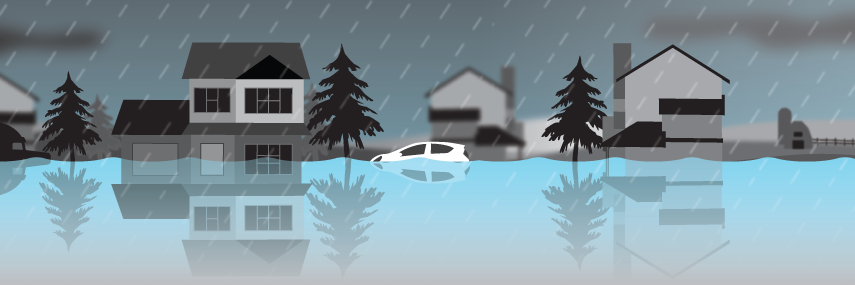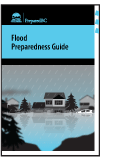Get prepared for floods

Floods are common in B.C. and can happen at any time of year. The most severe floods usually occur in spring and early summer due to heavy rain and melting snow. This seasonal flooding is known as freshet.
Coastal flooding can also occur due to wind and air pressure “pushing” the water onto shorelines, often resulting in high waves and flooding. This can occur at any time of the year and can be particularly damaging in icy waters of the winter.
Floods can damage buildings, cause power outages, disrupt transportation, create landslides and be a hazard for people.
Climate change and flooding
Annual precipitation has increased across the province, and summers tend to be drier than in the past. These trends contribute to increasingly destructive weather events, including flooding. Wildfires can also affect topography and soil stability (PDF), contributing to flooding and landslides. Read about how B.C. is preparing for and adapting to climate change.
Stages of a flood
Depending on the type and severity of flooding, it could take weeks or months for the water to recede. It’s important to take time to prepare and understand what to do before, during and after a major flood:
Get prepared
If you're in an area that is prone to flooding, or you just want to be proactive, there are a number of activities you can complete to prepare for a flood.
Stay safe
You can stay safe during a flood by understanding flood notifications, evacuation stages, and actions you can take to protect yourself.
Recover
Returning home after a flood can be overwhelming, but if you use caution and take things one step at a time, it is possible to recover and return your home to normal.
Social media resources
To help prepare and respond to seasonal flooding, we have created an easy-to-use social media package with graphics and pre-written content.
Flood preparedness guide
Prepare your household, protect your property and know what to do if a flood occurs.
Flood preparedness guide (PDF, 4.7MB)
For more information or inquiries about this guide, please contact us at PreparedBC@gov.bc.ca.

